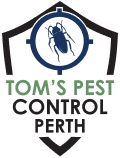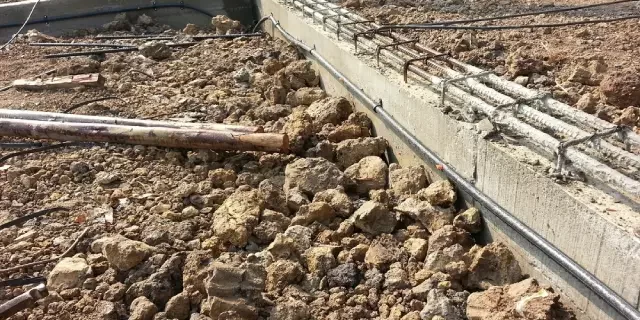Termites are a home or business owner’s worst nightmare. These tiny pests can cause massive damage, often going undetected until it’s too late. Termites are a huge problem for Australia, causing more than $1.5 billion in damage to homes every year Hidden from sight, chewing their way through the timber, one colony alone can run to more than 10 million workers, with the queen living for up to 25 years.
Termites feed on wood, and if left unchecked, they can compromise the structural integrity of your home. Fortunately, there are many effective strategies that helps to prevent termite infestations and protect your Perth property for long.
Understanding Termite Behaviour
Termites are social insects that live in colonies, which can contain thousands to millions of individuals. They are attracted to moisture and cellulose, a component found in wood, paper, and other plant materials. There are various types of termites, including subterranean, drywood, and dampwood termites. Each type of termites has unique habit, behaviour and habitat.
Knowing what kind of termites you may be dealing with can help in choosing the right prevention and treatment strategies.
Evolution of Termite Control
Research over the past several decades has established two main categories of termite control, preventative and remedial, encompassing four key methods:
- Construction practices (such as avoiding wood-to-ground contact and using termite-resistant materials)
- Termiticides (available as liquids, gases, dust, or baits)
- Treated building materials
- Physical barriers
What are now widely accepted control methods were once considered alternative solutions to proper building construction practices nearly a century ago.
The Role of Termite Barriers
Installing a termite barrier is one of the most effective ways to stop termites from invading your home. Termite barriers are physical or chemical barriers placed around or under a structure to prevent termites from gaining access. There are several types of termite barriers:
- Physical Barriers: These include materials like stainless steel mesh or sand, which termites cannot penetrate. Physical barriers are often installed during the construction of a home but can also be retrofitted to existing structures.
- Chemical Barriers: Chemical barriers involve applying a liquid termiticide to the soil around a building. This creates a treated zone that termites cannot cross without being killed. Chemical barriers are popular termite control method because of their effectiveness and long-lasting protection. A termite barrier is a proactive step in termite control. It creates an impenetrable shield that prevents termites from invading the wooden structures of your home.
- Regular Inspections and Maintenance: Regular termite inspections are vital to prevent infestations. A professional pest control can identify signs of termite activity and potential entry points around your home. You should have a termite inspection at least once a year. An annual termite treatment can also be a part of your regular home maintenance plan, ensuring that any new termite colonies are eradicated before they cause significant damage.
- Eliminating Moisture Problems: Termites prefers moist environments. One of the simplest ways to prevent termite pests is by eliminating moisture problems in and around your home. Fix leaking pipes, gutters, and downspouts instantly. You can make your home less attractive to termites by reducing moisture.
- Proper Wood Storage and Usage: Wood is a major attractant for termites. To protect your home, store firewood, lumber, and other wooden materials away from your house. Ideally, wood should be stored at least 20 feet from your home and raised off the ground. Avoid using wood mulch in landscaping near the foundation, as this can also attract termites.
Implementing Pest Control Measures
Effective pest control measures help to prevent termites and other pests from invading your home. Some of the effective termite control strategies are:
- Bait Stations: Termite bait stations are strategically placed around your home. These stations contain a substance that termites find attractive and lethal. Once the termites feed on the bait, they carry it back to their colony. It eliminates the entire colony over time.
- Soil Treatment: Treating the soil around your home with termiticides can create a protective barrier that kills termites upon contact. This method is effective for subterranean termites, which travel through the soil to reach their food sources.
- Foam Treatments: Foam termiticides can be injected into walls, voids, and other hard-to-reach places where termites may be hiding. This method targets the areas that shows the presence termite activity.
Choosing the Right Termite Treatment
There are several options available for termite treatment. They are:
- Liquid Termiticides: Liquid termiticides are applied to the soil around a structure to create a chemical barrier. This treatment is highly effective and can last for several years.
- Termite Baits: Termite baits are placed around your home to attract and kill termites. This method is less invasive than liquid treatments and can eliminate the entire colonies.
- Wood Treatments: Wood treatments method applies termiticides directly to wooden structures to protect them from termites. This is often done during construction but can also be applied to existing structures.
- Fumigation: For severe infestations, fumigation may be necessary. It involves covering the structure with a tent and releasing a gas that kills all termites inside. While highly effective, fumigation is costly and needs homeowners to vacate the premises for several days.
Consulting with a pest control professional from Tom’s Pest Control can help determine the best course of action for your situation.
The Importance of Annual Termite Treatment
Even if your home is currently termite-free, it’s important to invest in annual termite treatment. Termites are relentless and can find their way into even the best-protected homes over time. An annual treatment ensures that any termites that do make it past your defences are quickly eliminated. It prevents a full-blown infestation.
Working with a Professional Pest Control Company
While there are many DIY methods for termite prevention, working with a professional pest control company, like Tom’s Pest Control offers several benefits. Our professionals have the experience, tools, and knowledge needed to effectively prevent and treat termite infestations. We perform inspections, recommend the best termite treatments, and provide ongoing maintenance to keep your home termite-free.
Our team uses the modern pest control techniques to ensure your property is protected from these pests. Contact Tom’s Pest Control Perth today for a free consultation.
 (08) 6202 7096
(08) 6202 7096









